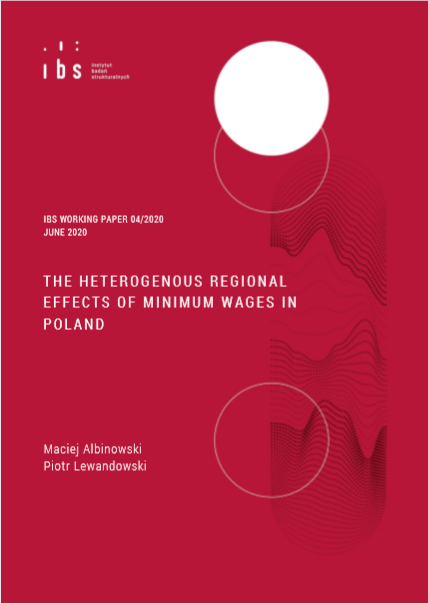Since 2008, Poland has been among the EU countries that have increased their minimum wage levels the most, following period in the mid-2000s during which the country’s minimum wage was barely raised. We evaluate the impact of these minimum wage hikes on employment and wage growth in Poland between 2004 and 2018. We estimate panel data models utilising the considerable variation in wage levels, and in minimum wage bites, across 73 Polish NUTS 3 regions. We find that minimum wage hikes had a significant positive effect on wage growth and a significant negative effect on employment growth only in regions of Poland that were in the first tercile of the regional wage distribution in 2007. These effects were moderate in size, and appear to be more relevant for wages. Specifically, we show that if the ratio of minimum wage to average wage had remained constant after 2007, by 2018, the average wages in these regions would have been 3.4% lower, while employment would have been 1.2% higher. On the other hand, in the remaining two-thirds of Polish regions, we find no significant effects of minimum wage hikes on average wages or on employment. We also find indicative evidence that the effects on employment growth differ between groups of workers: i.e., that they are negative for men and for workers in industry, but they are positive for women and for workers in services.

This paper uses Statistics Poland data. Statistics Poland has no responsibility for the results and conclusions, which are those of the authors. The usual disclaimers apply. All errors are our own.

